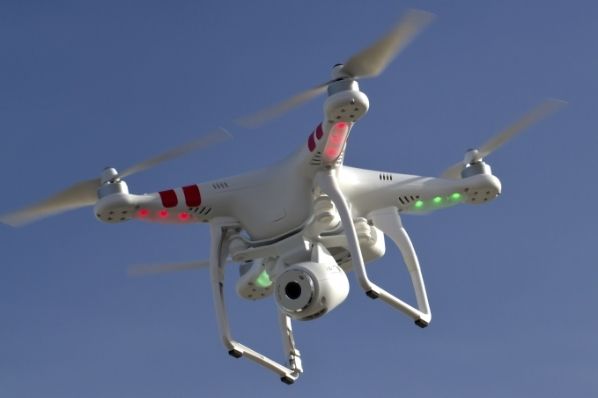Don’t drink and drone! That’s the lesson one as yet unidentified guy learned the hard way this week after he accidentally crashed his unmanned recreational aircraft onto the White House lawn during a night of drinking. Now, the entire industry may have to pay the penalty.
You’ve probably heard about or seen the reports. A government intelligence agency employee took to his rooftop to show off his two-foot wide drone to a female companion and it crashed on White House grounds. Explanations have been floated for how this mishap occurred including that his drone lost signal with his navigation device.
In response President Obama used the incident as an opportunity to call for stronger regulations surrounding the recreational and commercial use of drones. In an interview with CNN he noted:
"The drone that landed in the White House you buy in Radio Shack."
"You know that there are companies like Amazon that are talking about using small drones to deliver packages… There are incredibly useful functions that these drones can play in terms of farmers who are managing crops and conservationists who want to take stock of wildlife." Obama said. "But we don't really have any kind of regulatory structure at all for it."
"These technologies that we're developing have the capacity to empower individuals in ways that we couldn't even imagine 10-15 years ago," Obama said, pledging to work to create a framework that "ensures that we get the good and minimize the bad."
Drones are the outgrowth of new wave of technology. The President is right. Technology is improving our business processes and empowering us to do more than we ever dreamed of even a decade ago. The question is: What level of regulation is necessary?
The Federal Aviation Administration has issued some guidelines restricting where and how users can fly drones, but the industry remains largely unregulated. Based on calls from the President and members of Congress, the FAA is looking to create a regulatory structure and ramp up education.
A baseline of rules is important and especially when these aircraft could be used to spy on women at the beach (IWF's Sabrina regaled us with tales of this) or as a weapon. But too often bureaucrats go overboard and set limits or regulations that end up being too restrictive and counterproductive.
One can never anticipate every use of drones or any invention and trying to do so will be futile. Perhaps a good course of action is to place greater emphasis on education. With knowledge and guidance people generally use their common sense to make good and safe decisions, especially when they’re not inebriated.
Part of the challenge is that restrictions usually end up being more sweeping than is necessary. Tech news outlet Gizmodo sounds off about the Super Bowl drone ban for example:
You may have heard about the Federal Aviation Administration (FAA) quietly declaring that this year's Super Bowl will be a "no drone zone." You may not have heard just how big that no drone zone will be. It's 60 miles wide. The no drone zone is larger than the city of Phoenix.
…
Obviously, there are a lot of major safety concerns surrounding the Super Bowl. The FAA is not wrong for banning flying robots at such a high profile event, one that will be attended by tens of thousands and watched live by millions more. But imposing such a strict ban sends a message that the FAA is content to blow drone-related rules entirely out of proportion. This is disconcerting as the agency finalizes regulations on commercial drones, regulations that are reportedly pretty harsh and would require drone operators to get pilot licenses.
Nobody wants anything to go wrong at the Super Bowl. But if you really think about it, the FAA is setting a precedent that it will shut down the skies to even the smallest aircraft whenever it wants.
And the head of the Academy of Model Aeronautics explains that more education – not regulation- is needed:
If the president is talking about establishing rules to enable commercial use of the technology, we agree these rules are long overdue. But if he or others are suggesting that the recreational community needs to be federally regulated, that's another story.
…
Many well-meaning individuals acquiring this new technology simply don't know what airspace is restricted or prohibited, whether it's near the White House, around other federal buildings or even the upcoming Super Bowl. The best way to prevent drone incidents isn't to regulate recreational users; it's to educate them.
…
More and more people are accessing this fun, educational technology. These newcomers want to fly safely but don't realize that just because you can easily acquire the technology, it doesn't mean you can fly it anywhere and for any purpose.
For this reason, we've been working with industry groups and the FAA to educate new fliers about the safe and responsible use of unmanned aircraft.
Drones are new frontier and as with most other technological advances, t takes time for policies to catch up. That may not be a bad thing. Society functions on social norms and agreed upon behaviors as much as on prescribed laws. We often self-regulate with education and common sense better than sweeping rules.


